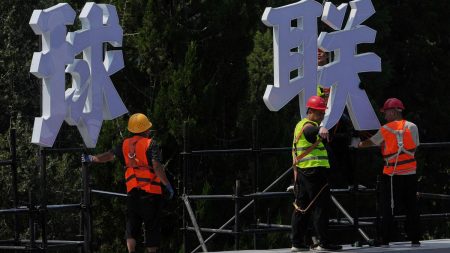The 2025 World Economic Forum (WEF) Annual Meeting, held in Davos, Switzerland from January 20-24, convened under the theme “Collaboration for the Intelligent Age.” The meeting served as a platform for approximately 3,000 leaders from over 130 countries, including 350 government officials and 60 heads of state, to address critical global challenges. The forum acknowledged the complex global landscape characterized by geo-economic uncertainty, trade tensions, cultural polarization, and climate anxiety, while also recognizing the potential of technological advancements like AI, quantum computing, and biotechnology to drive productivity and improve living standards. A key focus of the meeting was fostering collaboration across sectors to navigate these challenges and harness emerging opportunities.
The WEF emphasized the diversity of its participants, spanning sectors, industries, generations, and genders. This diverse representation aimed to ensure comprehensive discussions on global issues and the development of solutions that consider various perspectives. The presence of numerous world leaders, including US President-elect Donald J. Trump (participating via video link), European Commission President Ursula von der Leyen, Chinese Vice-Premier Ding Xuexiang, and leaders from various other nations, underscored the global significance of the forum. The participation of leaders from international organizations like the UN, WTO, IMF, and NATO further highlighted the collaborative nature of the event.
The meeting agenda addressed a wide range of topics, including geo-economic uncertainty, the transformative potential of artificial intelligence, strategies for reimagining economic growth, and safeguarding the planet in the face of climate change. Discussions focused on leveraging innovation and technology to address societal challenges, fostering international cooperation, and building a more sustainable and inclusive future. The diversity of participants ensured that multiple perspectives were considered in the search for solutions to complex global problems.
Beyond political and international organization leaders, the Davos 2025 meeting hosted over 1,600 business leaders, including CEOs and Chairs from WEF member and partner organizations. The presence of over 900 top CEOs and a significant number of Global Innovators, Tech Pioneers, and Unicorns highlighted the forum’s engagement with the private sector and its focus on driving innovation. This strong business representation emphasized the role of the private sector in shaping the future and collaborating with governments and other stakeholders to address global challenges.
Civil society and social sector representation were also prominent at the meeting, with over 170 leaders from labor unions, NGOs, religious and indigenous communities, and academic institutions participating. This diverse representation ensured that a broad range of perspectives informed the discussions and that the voices of various stakeholder groups were heard. The inclusion of these groups emphasized the importance of multi-stakeholder engagement in addressing complex global issues and building a more equitable and sustainable future.
Furthermore, the WEF actively engaged its communities, including the Unicorn and Technology Pioneers communities, Global Shapers, Young Global Leaders, and the Schwab Foundation for Social Entrepreneurship. Over 160 members of these communities attended the meeting, showcasing local innovations and solutions to global challenges. This focus on youth and entrepreneurship underscored the WEF’s commitment to fostering the next generation of leaders and empowering them to contribute to positive change on a global scale. The presence of these communities highlighted the forum’s dedication to nurturing innovation and supporting initiatives that address critical societal needs.














